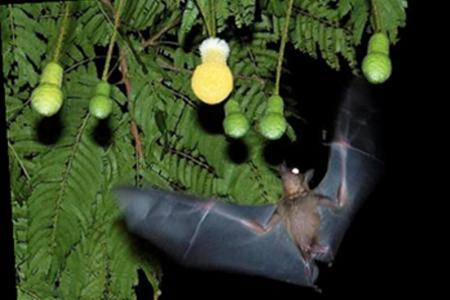Take precautions after coming into contact with a bat: Experts
It is highly unlikely that bats in Singapore are carrying the coronavirus that causes Covid-19, but people who come into contact with one should still take precautions, two experts said.
For example, residents who have bats flying into their homes should look out for secretion and contamination, and clean them as soon as possible. Bats spread viruses through their faeces.
Professor Wang Linfa, director of the emerging infectious diseases programme at Duke-NUS Medical School, said: "There is no evidence that bats in Singapore are carrying Covid-19 or related viruses. Of course, a negative finding does not prove a complete absence. Hence, it is always a good idea to be on the alert, but there is no need for panic."
Infectious diseases expert Leong Hoe Nam, who practises at Mount Elizabeth Novena Hospital, said the possibility of a bat spreading the virus to a human is similar to the odds of winning the lottery. But he cautioned: "The risk is small but real."
The experts were commenting on the issue following Manpower Minister Josephine Teo's Facebook post last week that residents in Boon Keng were concerned about bats flying into their homes being disease carriers.
But a National Parks Board officer and bat research specialist assured those affected that the bats are not carriers of virulent strains of the coronavirus.
The Jalan Besar Town Council also proceeded to prune fruit trees near the affected block to discourage the animals from roosting there.
Animal Concerns Research and Education Society (Acres) deputy chief executive officer Kalai Vanan told The Straits Times that measures such as hanging CDs at entrance points, do help deter bats. But a long-term solution is to deny them roosting spots.
He said Acres had often observed that bats prefer to hang from roughly textured ceiling areas, wooden decking and mesh, so if these factors can be removed, bats will be more unlikely to return to roost.
Mr Kalai reiterated that bats play a vital role in pollination, seed dispersal and insect population control. Anyone who spots a stranded bat can call the Acres hotline on 9783-7782 or NParks.
Get The New Paper on your phone with the free TNP app. Download from the Apple App Store or Google Play Store now


